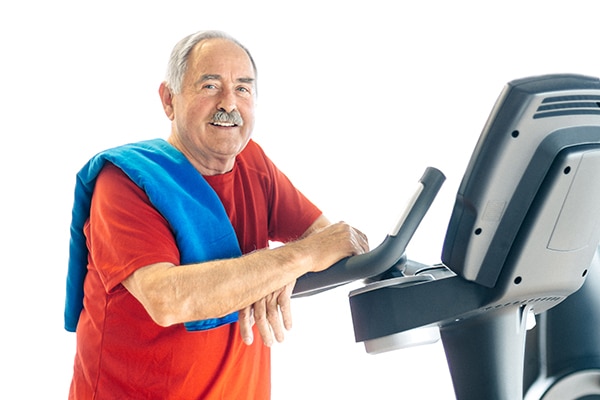The results of staying active and exercising throughout aging are fantastic, but for people with Parkinson’s, it may truly be a game-changer regarding the progression of the disease. Several studies are revealing direct links between physical exercise and Parkinson’s, like the largest clinical study up to now, in which patients who exercised a minimum of 2½ hours each week gained a greater total well-being compared to those who refrained from physical exercise. And that is just the beginning.
The onset of Parkinson’s symptoms happens following loss of the brain cells that create dopamine. Scientists believe that the benefits of exercise in Parkinson’s include the ability to recover lost connections, form new ones, and keep those that are still in place, among others, such as:
- Gains were realized in stride length, gait speed and balance after treadmill exercise – after as little as just one session, and lasting for many weeks afterwards.
- Motor function and coordination were increased in people who pedaled faster on a stationary bike – once again, with results lasting for weeks after the study ended.
- Recognizable improvements regarding the normalcy of movement were found in persons with Parkinson’s who participated in a routine exercise program in comparison to those that did not.
It’s important to mention that final results achieved were reliant upon consistent, ongoing exercise. The tests revealed that any protective benefits occurring were discontinued once the amount and intensity of physical activity was reduced or was implemented just for a short span of time. The required criteria for sustainable results seem to be the same as those necessary to help those who’ve suffered a traumatic brain injury or stroke: intensity, specificity, difficulty, and complexity.
Additional scientific studies are underway to hone in even further on the advantages of physical exercise in people that have Parkinson’s disease, and the precise reasoning behind it. In the meantime, in the event your family member has been clinically determined to have Parkinson’s disease, it’s certainly beneficial to talk to his or her primary care physician for a recommended exercise routine.
For assistance with safe, dependable transportation and accompaniment to a doctor’s appointment or exercise program, or encouragement and motivation to take part in an ongoing exercise program at home, call Happier Home Care, the leading provider of home care in Glendale and surrounding areas, at 818-651-6679. Our professional in-home care services are available to enhance overall wellbeing for those with Parkinson’s disease or another condition of aging. We’re here for you any time with the support and resources you need.
